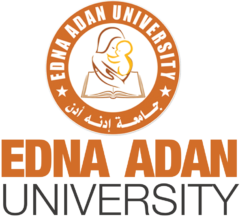Introduction:
Medical laboratory science plays a crucial role in modern healthcare, providing vital diagnostic information that guides patient care and treatment decisions. An undergraduate program in medical laboratory science prepares students to become skilled laboratory professionals who perform a wide range of laboratory tests to aid in the diagnosis, monitoring, and treatment of diseases. In this comprehensive guide, we will explore the structure of a typical undergraduate program in medical laboratory science, including its curriculum, practical experiences, and the essential components that shape future leaders in laboratory medicine.
Admission Process:
Admission to an undergraduate program in medical laboratory science typically requires a strong academic background, particularly in science and mathematics. Prospective students are often expected to have completed high school with coursework in biology, chemistry, mathematics, and physics. Additionally, universities may consider standardized test scores, letters of recommendation, personal statements, and interviews to assess the applicant’s aptitude for laboratory science and commitment to patient care.
Structure of the Medical Laboratory Science Undergraduate Program:
1. **Foundational Sciences:**
– The early stages of the medical laboratory science program focus on foundational courses in the basic sciences, including biology, chemistry, anatomy, physiology, and microbiology. Students gain a solid understanding of the principles and concepts underlying human biology and disease processes.
– These courses provide the scientific foundation necessary for understanding laboratory test methodologies, interpreting test results, and correlating laboratory findings with clinical diagnoses.
2. **Clinical Laboratory Science:**
– Core courses in clinical laboratory science cover a wide range of topics related to laboratory testing methodologies, quality assurance, and regulatory standards. Students learn about laboratory instrumentation, analytical techniques, and laboratory management principles.
– Through lectures, laboratory exercises, and hands-on demonstrations, students develop technical proficiency in performing various laboratory tests, including hematology, clinical chemistry, microbiology, immunology, and molecular diagnostics.
3. **Diagnostic Testing and Interpretation:**
– Advanced courses in diagnostic testing and interpretation focus on the application of laboratory test results to patient care. Students learn how to interpret laboratory data, correlate test findings with clinical conditions, and communicate test results effectively to healthcare providers.
– Case studies, clinical correlations, and problem-solving exercises help students develop critical thinking skills and clinical decision-making abilities essential for providing accurate and timely laboratory services.
4. **Clinical Practicum:**
– Clinical practicum experiences are a crucial component of the medical laboratory science undergraduate program, providing students with hands-on training in real-world laboratory settings. Students complete supervised rotations in clinical laboratories, including hospital laboratories, reference laboratories, and research laboratories.
– During clinical practicum rotations, students gain practical experience in specimen processing, test performance, result interpretation, and quality control procedures, under the guidance of experienced laboratory professionals.
5. **Professional Development:**
– Courses in professional development and ethics prepare students to assume roles as competent and ethical laboratory professionals. Students learn about professional standards, ethical principles, and legal regulations governing laboratory practice.
– Professional development activities, such as resume writing workshops, interview preparation sessions, and networking events, help students transition from the classroom to the workforce and pursue career opportunities in laboratory medicine.
Practical Experiences:
In addition to clinical practicum experiences, students in medical laboratory science programs may engage in research projects, laboratory internships, and community outreach activities to enhance their professional development and contribute to the advancement of laboratory science. These practical experiences foster critical thinking, problem-solving skills, and a commitment to excellence in laboratory practice.
Conclusion:
Completing an undergraduate program in medical laboratory science is a transformative journey that prepares students to become competent, skilled, and ethical laboratory professionals dedicated to advancing healthcare through laboratory medicine. Through a combination of rigorous academic coursework, clinical practicum experiences, and professional development activities, future laboratory professionals emerge with the knowledge, skills, and commitment needed to provide accurate and reliable laboratory services in diverse healthcare settings. By embodying the core values of laboratory medicine – accuracy, integrity, and professionalism – graduates of medical laboratory science programs are poised to make a meaningful impact on patient care and contribute to the advancement of laboratory science for the benefit of society.
